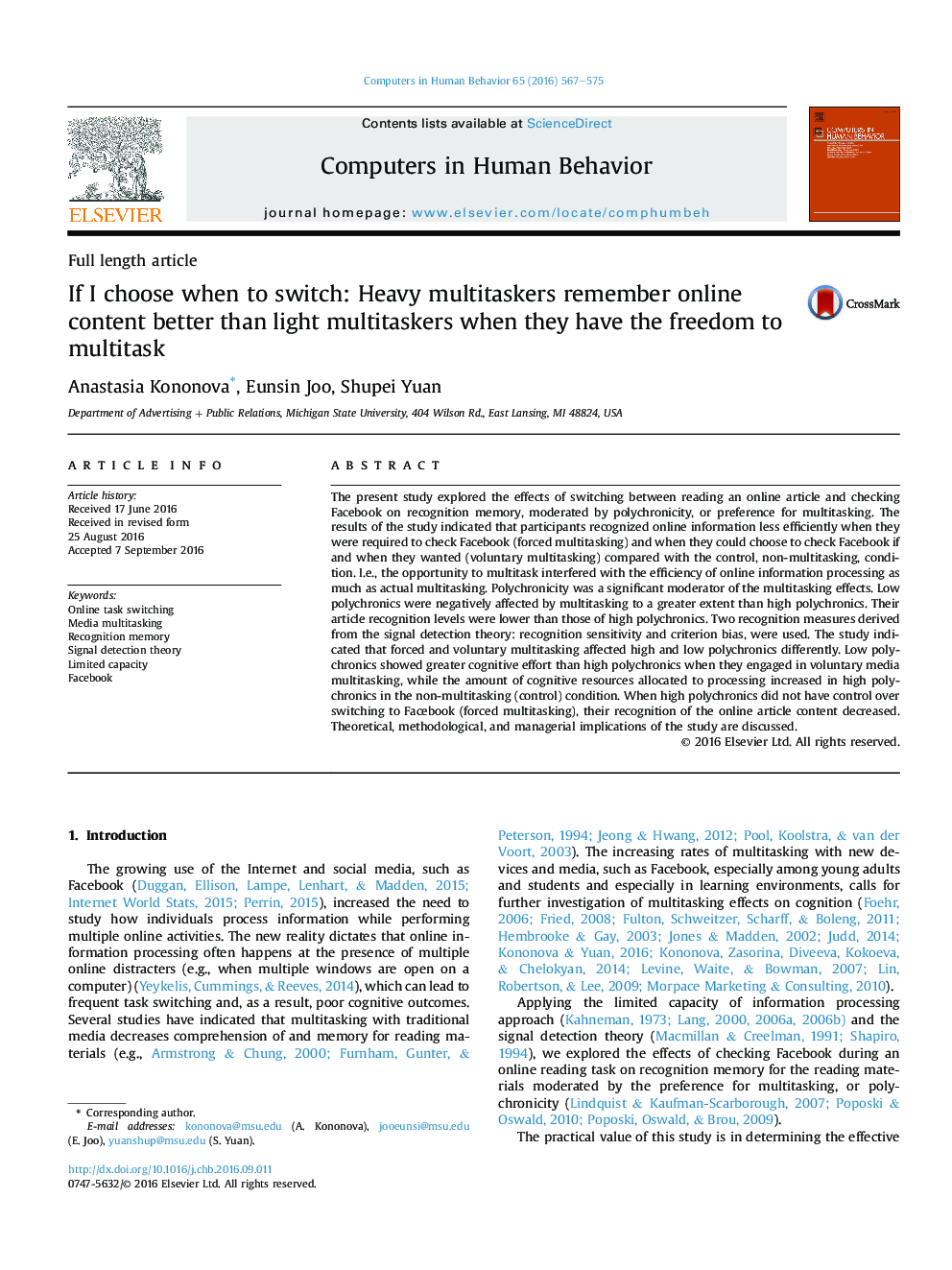| Article ID | Journal | Published Year | Pages | File Type |
|---|---|---|---|---|
| 4937823 | Computers in Human Behavior | 2016 | 9 Pages |
Abstract
The present study explored the effects of switching between reading an online article and checking Facebook on recognition memory, moderated by polychronicity, or preference for multitasking. The results of the study indicated that participants recognized online information less efficiently when they were required to check Facebook (forced multitasking) and when they could choose to check Facebook if and when they wanted (voluntary multitasking) compared with the control, non-multitasking, condition. I.e., the opportunity to multitask interfered with the efficiency of online information processing as much as actual multitasking. Polychronicity was a significant moderator of the multitasking effects. Low polychronics were negatively affected by multitasking to a greater extent than high polychronics. Their article recognition levels were lower than those of high polychronics. Two recognition measures derived from the signal detection theory: recognition sensitivity and criterion bias, were used. The study indicated that forced and voluntary multitasking affected high and low polychronics differently. Low polychronics showed greater cognitive effort than high polychronics when they engaged in voluntary media multitasking, while the amount of cognitive resources allocated to processing increased in high polychronics in the non-multitasking (control) condition. When high polychronics did not have control over switching to Facebook (forced multitasking), their recognition of the online article content decreased. Theoretical, methodological, and managerial implications of the study are discussed.
Related Topics
Physical Sciences and Engineering
Computer Science
Computer Science Applications
Authors
Anastasia Kononova, Eunsin Joo, Shupei Yuan,
